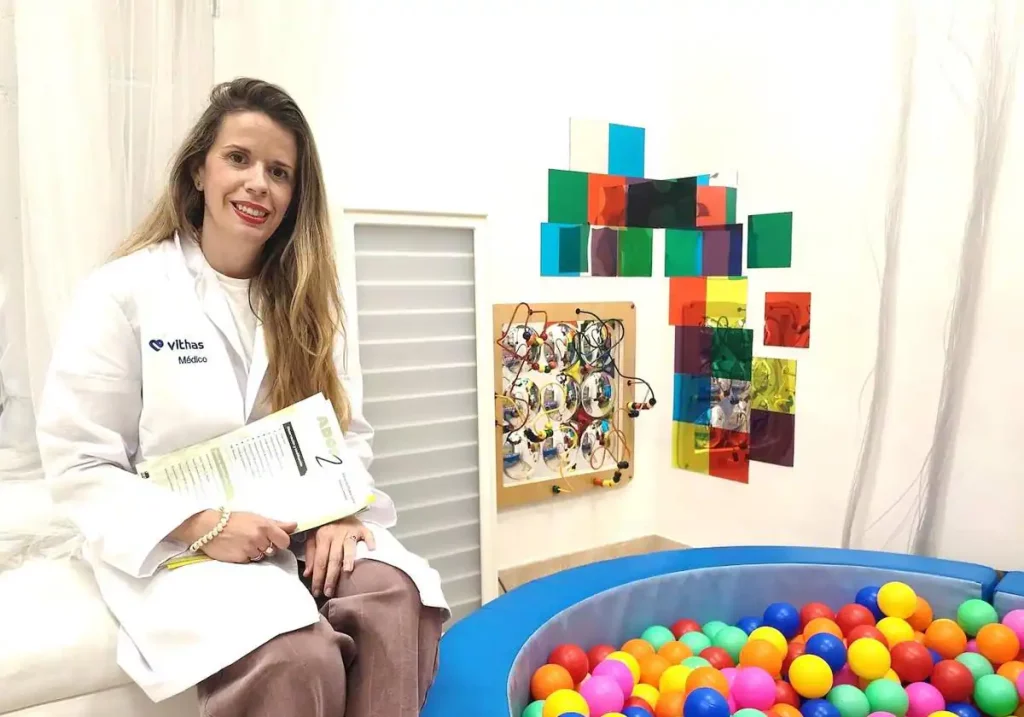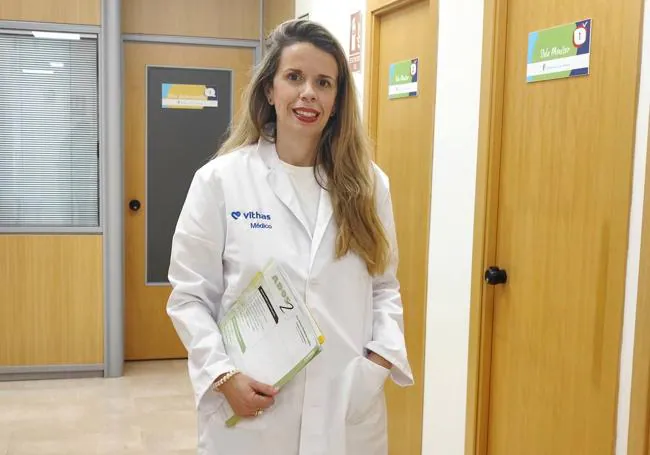
Here is an interview with Dr. Marina Romero González conducted by our specialist: Dr. Marina Romero González, Child and Adolescent Psychiatrist.
Friday, 22 December 2023, 13:44
Source: SUR Newspaper
https://www.diariosur.es/sociedad/salud/mejor-regalo-podemos-hacerle-hijos-navidades-pasar-20231222134453-nt.html
For the youngest members of the household, Christmas is usually synonymous with presents, free time and magical moments. But, as happens with many adults, these dates can generate other less positive feelings in them, such as emotional stress, anxiety or abnormal behaviour caused by harmful family dynamics. It is therefore important to remember what aspects or routines are most beneficial for them, and what the role of parents and family members should be during these special weeks for both. We talk to Dr. Marina Romero, specialist in child and adolescent psychiatry and head of the Child Mental Health, Early Intervention and Neurodevelopmental Unit at Vithas Malaga Hospital, about all of this.
- Christmas is a time of year when adults can experience some emotional stress. For children, can these symptoms also occur?
Christmas, as you rightly say, is a time to break with routines, hang up school bags and spend more time with the family. And while we often try to decorate the mountains of problems like a Christmas tree, it is also a time that can be stressful for many adults. We also take the opportunity to justify excessive eating and drinking and compulsive shopping, if it wasn't done on Black Friday.
On the other hand, an ambivalent feeling of melancholy often arises, longing to go back and be with those who are gone and remembering who we are and who we wanted to be.
However, this rollercoaster of emotions is mixed with our children's excitement about these days, with the desire to maintain some order in days of chaos, to limit the use of screens, and to turn every day into an attempt to modify behaviour as a bargaining chip for presents from the Three Wise Men or Father Christmas.
For children, however, it is different and most of them experience it as a time of fun, illusion and indiscriminate gifts, as well as the joy of not having to keep to the usual timetables, even though this can lead to a tendency to become more easily deregulated due to the lack of routine, predictable and structured environment.
- What are the main signs that can alert us to these alterations in their emotional state?
It may be the case that there are other realities in which certain clinical psychiatric symptoms are accentuated or triggered in the youngest members of the household. Especially in those homes where there are complex cohabitation dynamics which become risk factors, instead of being a protective environment for the child, where they can disconnect and rest from the school day.
That is why, at this time of year, it is important to identify whether the environment in which our children develop is one of respect and love or whether, on the contrary, it is an environment of tension and continuous conflict. If so, the first gift we can give our children is to ask for professional help from specialist psychologists and psychiatrists.

- As the saying goes, "prevention is better than cure". That said, how can we prepare for Christmas when we live with our children??
My general recommendations would be the following: favour outdoor activities, visiting Christmas environments and playgrounds. Anticipate your children's plans for celebrations and family meals and involve them in them, as children need a structured environment where they feel safe. On the other hand, allow them to take their own toys to other places where family meals will be held. Involve them in the preparations, when it comes to cooking, setting the table or assigning them a task such as "taking photos during lunch or dinner. And if they feel tired, it is highly recommended that they have the option of sleeping somewhere separate.
- And when we talk about conflicts or negotiations, what approach should we take to them?
On the more relational side, we should avoid negotiations with a negative approach. For example: "If you don't behave, the Three Wise Men won't bring you anything". It is much more effective to use short-term incentives, for example: "If you help me make the cake, tonight you can choose the film for us to watch as a family".
- On the other hand, is there any recommendation on how many or what kind of gifts are most appropriate?
At this time of year I often ask children what they are going to ask for for Epiphany and it is curious because my feeling is that many of them do not know what to ask for. Perhaps what we need to consider is that they don't need a mobile phone, they need time to talk to their parents. They don't need the latest videogame on the market, they need time to play super heroes and you their allies or enemies. Because in this society full of school hours, homework and extracurricular activities, what our children don't have is time, let alone quality time to spend with their families and enjoy themselves, as long as there is a family atmosphere to go with it.
One of the gifts I suggest to parents is to make vouchers or cheques for special plans together, such as going to the theatre, musical, zoo, circus, etc. It is a way of giving extra value to the time we spend with them.
All children deserve to receive gifts at this time of year, regardless of their effort, the grades they get or their behaviour at home, as the best way to motivate our children is through incentives and not with negative consequences in the long term, especially at times as important as Christmas.
- What role should parents play at this time of year?
Parents always play a key role in the emotional regulation of children. It is therefore very important that they are also flexible at this time of year, as it is very difficult to follow a routine and therefore it is also beneficial for children to be able to adapt to changes in plans.
What we must avoid is that this time of year becomes a period of added stress, when the aim is quite the opposite.
- Finally, how can specialists such as psychologists, psychiatrists or educational psychologists help us in all these tasks?
At the USMIN-AT (Children's Mental Health, Early Care and Neurodevelopment Unit) at Vithas Malaga we take advantage of the Christmas season to hold group workshops with our children on psychoeducation to limit the use of screens during the holidays, establish routines with a certain flexibility, prioritise play and time with family and friends because the aim is to rest from the hectic pace of life that both adults and children lead on a day-to-day basis.
In addition, throughout all the sessions, priority is given to working on emotional management tools so that they can adapt to any situation of change of routine, although we must never forget that children are mirrors of their caregivers and what we adults must learn is to regulate our own emotions in order to teach them to manage them with the most powerful tool that exists, which is example.


